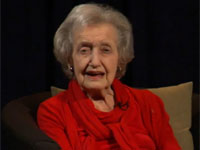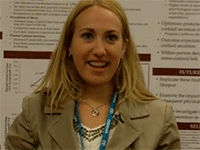Decisions! Decisions! Decisions! and How We Make Them – Insights from Psychological Science
Wouldn’t it be nice if all our decisions were the results of clear, rational, deductive reasoning? Of course they rarely are. A full range of emotions influence decision-making and experts in the field will look at fear and our transportation decisions following 9/11, psychic numbing and genocide and the effect of emotions on risky choices during the Association for Psychological Science annual convention in Chicago, from May 24-27, 2012.
Ben R. Newell from the University of New South Wales will moderate the panel discussion. His research has shown that the best way to understand how and why decisions are made is in the context of the learning that precedes them and the feedback that follows them. Ben R Newell, Associate Professor, Psychology Faculty of Science, University of New South Wales, ben.newell@unsw.edu.au
Saturday, May 26, 9:00 AM -10:20 AM
Ontario
- After the 9/11 attacks many people decided that they would prefer to take the extra time to drive somewhere than risk their lives on an airplane. Subsequently, research argued that, in fact, the switch from airplanes to cars actually resulted in 1500 more fatalities. After the bombing of the London Subway in July 2005 that killed approximately 50 people and injured hundreds, Peter Ayton compared fatalities on the subway with fatalities of bicycle riders. In this session he will discuss the 9/11 research in the light of his own findings. Peter Ayton, Professor of Psychology, City University of London P.Ayton@city.ac.uk
- Most people are caring and will do whatever they can to help someone who might be suffering. And yet, when we hear about genocide and other mass atrocities, why is it so difficult to experience outrage or the same simple human empathy? One mechanism involves “psychic numbing”, the experience of almost indifference that is the response to statistics about mass murders or genocides. Paul Slovic will examine the mechanisms for our intuitive moral feelings and discuss how they cannot be trusted to motivate proper action against events that are at once so horrifying and yet so difficult to apprehend. Paul Slovic, Professor of Psychology, University of Oregon, pslovic@uoregon.edu.
- A decision can make us happy or sad. It can make us feel as if we gained something or lost something of value. How do these emotions affect — both directly and indirectly — choices that might be considered risky. Choices that are especially complex, yielding multiple outcomes with all sorts of gains and losses will be discussed by John W Payne from Duke University. Neuroscience has offered new insights into the way the brain functions when faced with complex decisions, and this will be one component of his presentation. John W. Payne, Professor of Management, Fuqua School of Business, Duke University, jpayne@duke.edu
News media may register to attend the conference for free at http://www.psychologicalscience.org/index.php/convention/aps-23rd-annual-convention-2011-press-information





APS regularly opens certain online articles for discussion on our website. Effective February 2021, you must be a logged-in APS member to post comments. By posting a comment, you agree to our Community Guidelines and the display of your profile information, including your name and affiliation. Any opinions, findings, conclusions, or recommendations present in article comments are those of the writers and do not necessarily reflect the views of APS or the article’s author. For more information, please see our Community Guidelines.
Please login with your APS account to comment.